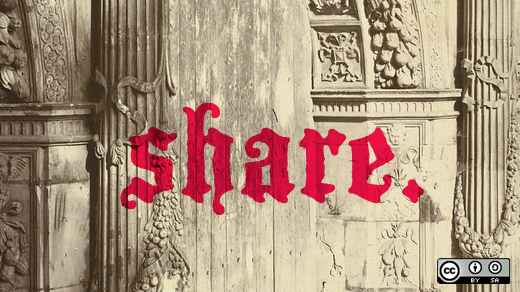A few months ago, I joined Red Hat as a marketing apprentice (intern) in Paris, France—where I am also continuing my studies at France Business School—and it became clear to me that my vision of what open source is and what it means to be part of the community has changed. This evolution has significantly altered the way I am participating in projects and communiticating with peers.
I've always been an open source and Linux "evangelist" who has loved to talk, read, and share things the open source way. And in the beginning, my vision of the open source philosophy was idealistic—focusing a lot on values like altruism and freedom. I was also passionately involved in the community—reading blogs, trying out distributions, and getting excited about every open source program I installed. I began dabbling with open source on my first computer, running tests of different Linux distributions (I felt it was never lightweight enough). To get things done, I used Open Office as my default productivity suite.
Over time, I gained new inspirations and perspectives on open source, and as the years went on, I became increasingly interested in how business could help promote open source software. It was something I had not considered before, because it seemed unrealisitc to me that businesses could survive using open source technology and the open source way of thinking. Then, a lightbulb—it was quite the opposite. I realized the open source model could be the reason businesses remain sustainable.
An open source community
Kristian Ulrich Larsen explains in this video that creativity is not only for the artist, and we could consider everyone an artist in their own way. This concept is now widely accepted: that creativity is a driving factor in technology and innovation. And, to me, communities are the backbone of creativity because they work in a collaborative way and thus are capable of providing ideas that could take years to show up in a more traditional business environment where there is strict hierarchy and ideas come from the top down.
In an open source community, everyone is encouraged to contribute and share, and prove ideas relevant or not. In that way, ideas spread faster and the community drives innovation.
The business perspective
Every company wants to have the greatest ideas and a lot of them. But the question your potential client is asking is, What do you want us to buy and why do we need it? So, the reality of things is that those ideas have to be more than just inspiring, they have to sell. How can a great idea spread and give birth to something tangible and concrete?
Together they grow
When an idea inspires us, we want it to spread and last. We want it to have it's "time." Financial support is one way to achieve this, and it's why business is good for the open source community. And communities bring innovation to the market and deliver what consumers dream about. It's clear that both structures bring advantages when coming up with something that inspires and that sells.
For a business, "open sourcing" means you not necessarily have to open your code, because you might not be a software editor after all, but it can mean that you respect the values behind open source: to share, and share with transparency. Also, open source provides a model for business that makes many feel that they are supporting a worthy cause.






2 Comments